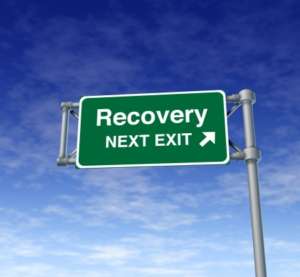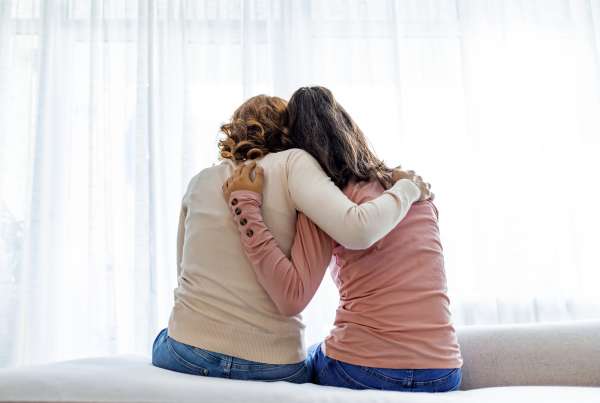Children 18 years old and younger are in a crucial stage of physical and mental development and are often unable to rationally process obstacles that are simple for most adults. Varying factors lead a youth down the wrong path resulting in a life of fear and isolation. Visions Adolescent Treatment Centers has concentrated on treatment for drug addiction, substance abuse, and troubled teens since 2002. Youths ages 13 to 18 from southern California, big cities like New York City, Chicago, and internationally have gone to Visions Centers seeking residential treatment. There are several programs in California, but only Visions Adolescent offers an extensive, clinically based treatment for children extending to families. 
Visions Adolescent Residential Treatment Center is a 25 acre gated community in the hills of Malibu, California with a home-like setting conveying a sense of warmth and security. A Mediterranean style home surrounded by the peace and beauty of nature conveys a sense of comfort and calm. Sleeping quarters are separate for male and female patients with two in each room under the supervision of day and evening Staff. Crisis intervention is readily available on a 24 hour basis. Length of stay is 45 to 90 days depending on the severity of symptoms and psychosocial stressors.
Visions performs several assessments to determine if residential treatment admission is required including the child’s condition and specific drug issues.
Medical Assessment
A medical doctor specializing in mental health and substance abuse handles the initial medical assessment and services applicable for each teen. The medical doctor or the adolescent’s personal physician conducts a history and physical evaluation before the child is cleared for admission into the residential treatment program.
Substance Abuse Assessment
The chemical dependency screening examines psychotropic substance abuse, establishes a baseline, and identifies areas of need. The assessment determines if there are any psychological issues or recovery belief systems that would prevent healing.
Psychosocial Assessment
Psychosocial assessment reviews the child’s medical history, family history, developmental history, social and educational conduct, legal history, drug and alcohol history, and it’s impact on the residential treatment process.
Psychiatric Assessment
The youth will be evaluated after the initial interview by the psychiatric director, a licensed psychiatrist experienced in the areas of mental health and substance abuse treatment for adolescents. Upon diagnosis of mental health or co-occurring symptoms, admission into the residential treatment program will be arranged.
Treatment Plan
A treatment plan is created from information collected during the assessment process. A counselor goes over the treatment plan with the adolescent to ensure the goals and expectations are fully understood. The resident contributes additional treatment goals such as pursuing educational and vocational interest, examining psychological conflicts, and exploring new or previous recreational pursuits or interests.
Visions has a wide range of qualified clinicians that work with each child using current and effective techniques. The program director supervises all of the residential treatment counseling services performed by highly trained personnel. A licensed therapist and a counselor work directly with the patient throughout treatment. A registered dietitian plans appropriate meals and provides dietary consultation as needed. An equine therapist uses horses to help the child in identifying and recognizing feelings that may be difficult with conventional therapy. Art therapists aid in creating interpretive art to use in the treatment method.
Other residential treatment team members involved in the counseling process as required include:
- Psychiatrist
- Supervising Nurse
- Dialectical Behavior Therapy (DBT) Therapist
Academics is a component that makes Visions Residential Treatment Center a wise choice. Each child engages in three hours of individualized schooling using a personalized curriculum on weekdays. An activities consultant leads the patient in a “tailor-made” physical fitness program five times a week for one hour focusing on the release of nervous tension.
The objectives of the Visions Residential Treatment Program include:
- Encourage and motivate the teen to achieve and sustain a healthy lifestyle
- Determine and meet the psychological and psychiatric needs of the child
- Establish a referral network system for services not accomplished by Visions
- Involve family members in the rehabilitation process to reduce dysfunction within the family
Mental Health and Substance Abuse issues affect the entire family. Studies show that the best outcomes for treatment depend on the family’s understanding and participation in the therapeutic process. Most families feel the same way about their troubled teen’s issues before and during treatment. Fear, helplessness, hopelessness, anxiety, and anger are universally shared feelings.
The residential treatment includes family-focused therapy for a minimum of five hours a week lead by a family therapist. Family members or legal guardians are invited to accompany the child during each session.
Multi-Family Group addresses issues common to all families such as communication, handling conflicts, and maintaining boundaries. Residents and family members meet other families in similar situations.
Individual Family Sessions are conducted between residents and their family members in private. Treatment goals and conflicts are addressed under the guidance of a family therapist.
Family Education allows the child and families to develop an understanding of typical roles played by members of other families. Frequent issues brought up by other family members in treatment are addressed.
Family Passes are a unique feature earned by well behaved patients in residential treatment. Every Sunday and Monday are for outings that include movies, museums, the beach, go-cart racing, community services, ropes courses, and rock climbing.
The Fourth Dimension is an optional enrollment benefit after discharge from Visions Residential Treatment providing long term care. Adolescents are encouraged to attend aftercare and self-help groups twice a week. Individual sessions are available to alumni for a charge per service.
Annual Alumni Events:
- Winter Ski/Snowboard Trip
- Alumni Family Weekend
- Alumni vs. Staff Softball Game
- Knott’s Scary Farm Night
- Magic Mountain
Visions Residential Treatment Center is a private pay program and full payment is required from the family. Our team will assist with insurance benefit verification and utilization review. Visions Outpatient works out of network with insurance. We will provide the following services to our outpatient families: Benefit verification, pre-authorization, utilization review, billing and collections.
Visions Adolescent Treatment Centers is the best residential treatment center in California with a mission of providing cutting edge mental health, substance abuse, and family therapy. With the Fourth Dimension alumni program, the child will always know that help is just a phone call away.
Please click below to schedule your consultation or call us at 866-889-3665







